Population Change in the United Kingdom
Population Change in the United Kingdom
Edited by
Tony Champion and Jane Falkingham
London New York
Published by Rowman & Littlefield International, Ltd.
Unit A, Whitacre Mews, 26-34 Stannary Street, London SE11 4AB
www.rowmaninternational.com
Rowman & Littlefield International, Ltd. is an affiliate of Rowman & Littlefield
4501 Forbes Boulevard, Suite 200, Lanham, Maryland 20706, USA
With additional offices in Boulder, New York, Toronto (Canada), and Plymouth (UK)
www.rowman.com
Selection and editorial matter 2016 by Tony Champion and Jane Falkingham
Copyright in individual chapters is held by the respective chapter authors.
All rights reserved . No part of this book may be reproduced in any form or by any electronic or mechanical means, including information storage and retrieval systems, without written permission from the publisher, except by a reviewer who may quote passages in a review.
British Library Cataloguing in Publication Data
A catalogue record for this book is available from the British Library
ISBN: HB 978-1-78348-591-8
PB 978-1-78348-592-5
Library of Congress Cataloging-in-Publication Data
Names: Champion, A. G. (Anthony Gerard), editor. | Falkingham, Jane, editor.
Title: Population change in the United Kingdom / edited by Tony Champion and Jane Falkingham.
Description: London ; New York : Rowman & Littlefield International, 2016. | Includes bibliographical references and index.
Identifiers: LCCN 2016014156 (print) | LCCN 2016022830 (ebook) | ISBN 9781783485918 (cloth : alk. paper) | ISBN 9781783485925 (pbk. : alk. paper) | ISBN 9781783485932 (electronic)
Subjects: LCSH: Great BritainPopulation. | Demographic transitionGreat Britain.
Classification: LCC HB3583.A3 P664 2016 (print) | LCC HB3583.A3 (ebook) | DDC 304.60941dc23
LC record available at https://lccn.loc.gov/2016014156

The paper used in this publication meets the minimum requirements of American National Standard for Information SciencesPermanence of Paper for Printed Library Materials, ANSI/NISO Z39.48-1992.
Printed in the United States of America
Contents
Jane Falkingham and Tony Champion
Maria Evandrou, Jane Falkingham and Athina Vlachantoni
Alan Marshall and James Nazroo
Jakub Bijak, George Disney, Sarah Lubman and Arkadiusz Winiowski
Sylvie Dubuc
Ursula Henz
Ann Berrington and Ludi Simpson
Tony Champion
Nissa Finney and Gemma Catney
Ernestina Coast and Emily Freeman
Paul Norman
When, in 1980, I first attended the annual conference of the British Society for Population Studies at the University of York, the workshop on ageing was attended by a tiny number of participants, and I fear I cannot recall major sessions on British migration, either internal or international. This does not reflect the vibrancy of British demography at that time, but rather that different factors, such as the decline in the birthrate, were seen as the most important factors driving population change in Britain.
Population also did not feature heavily in thinking around British social and economic policy in the 1980s, and Heather Joshi should be thanked for putting together the series of seminars at the Centre for Economic Policy Research that led to the wonderful collection of essays that appeared in her book on Britains populationin many ways a coming of age for the British Society for Population Studiesas it demonstrated the vivid, exciting and multidisciplinary nature of the research challenges that Britains changing population brings to a huge range of social scientists, and perhaps twenty years ahead of its time, it clearly illustrated the impact that demographic research could have across the social policy spectrum.
If there was any doubt of the importance for social policy of understanding Britains changing population, then the trends over the past twenty-five years will have dispelled them, probably forever. Childbearing has become ever more common amongst women in their thirties and increasingly in their forties, with implications for generational length, and ageing is a subject rarely out of the national media spotlight, whether it be the implications of increasing longevity for pension provision, the challenges around long-term care or the strategies to maximise healthy life expectancy.
However, it is migration that has perhaps been the most transformational in raising the awareness of the need to understand trends in Britains population. Increasing international migration, changing patterns of internal migration and Britains increasingly multicultural society have become exciting research topics with important social policy implications.
To understand these trends better, demography in Britain has become ever more multidisciplinary. Fuelled by the availability of a rich cadre of data ranging from the census through the UK cohort studies and many surveys, sometimes now including biomarkers, and increasingly administrative data, researchers have risen to the challenge and addressed an increasingly wide, yet vitally important, range of issues. With the passing of its golden anniversary in 2015, the Economic and Social Research Council should be thanked for its continuing support for UK data.
At the heart of this wonderful endeavour has been the British Society for Population Studies. Its wide range of outstanding scholars from many disciplines have led research, nurtured the next generation and provided a forum for debating and understanding these most important of research challenges. And disseminating this knowledge widely is so important, which is why this bookaround twenty-five years after Heather Joshis volumeis so welcome. It is a collection of important chapters that span the challenges faced by Britains population and do not shirk from the importance of understanding what this means for social policy. We should all thank Tony Champion and Jane Falkingham for their vision, dedication and drive in producing this volume that will, I am sure, stand the test of time.
Professor Sir Ian Diamond
In the mid-1980s, the British Society for Population Studies (BSPS) and the Centre for Economic Policy Research collaborated on organising a series of lectures highlighting the key challenges facing policymakers and practitioners as a result of the changing demography of Britain; these were then brought together in a book, The Changing Population of Britain (1989), edited by Prof. Heather Joshi, then president of BSPS. A quarter of a century on from this landmark publication, understanding the changing population of Britain remains as important today as it was then. Some of the issues covered then remain similar to those today but now take on a somewhat different form, whilst other new issues have surged up the policy agenda.
For this reason, BSPS thought it was timely to revisit Joshis volume and bring together academics and policymakers to describe and discuss the findings of the latest research on the causes and consequences of demographic change in contemporary Britain and to frame the research agenda for the next twenty-five years. In terms of rationale, this book subscribes to the same sentiments that Joshi expressed in the first sentences of the preface to her 1989 book (Joshi, 1989a: vii): The study of population is vital. It is vital in that it is concerned with the vital events of births and deaths and other momentous transitions in peoples lives. It is vital for informing forecasting and decision in both public and private sectors. It is also vital... in the sense that it is a very lively branch of social science in Britain.


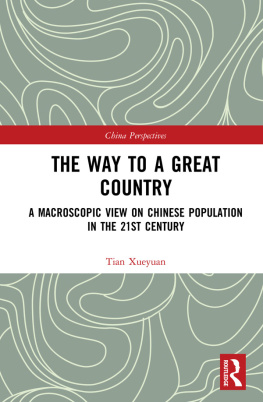
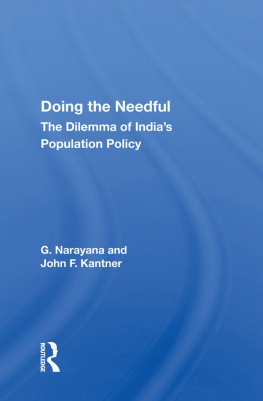
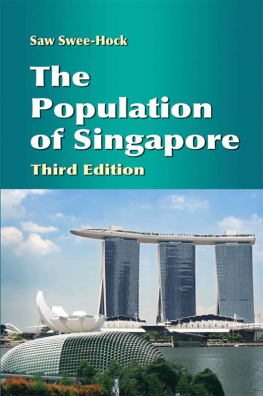
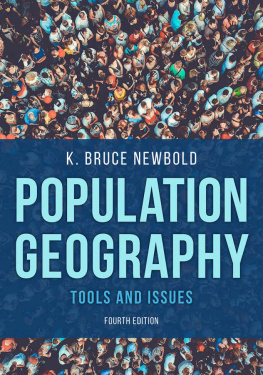
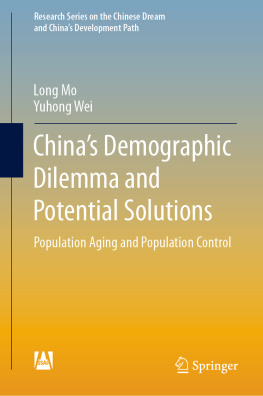
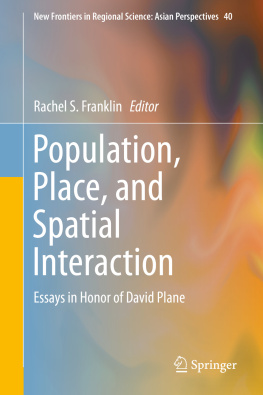

 The paper used in this publication meets the minimum requirements of American National Standard for Information SciencesPermanence of Paper for Printed Library Materials, ANSI/NISO Z39.48-1992.
The paper used in this publication meets the minimum requirements of American National Standard for Information SciencesPermanence of Paper for Printed Library Materials, ANSI/NISO Z39.48-1992.